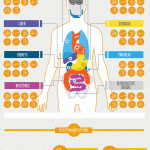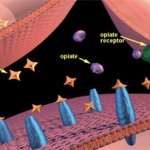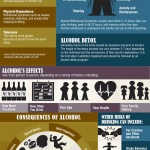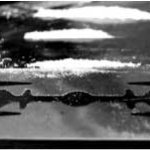
Health professionals have for some time recognized a connection between abuse of alcohol and anxiety disorders like PTSD, or post-traumatic stress disorder.
People who drink a lot have an increased risk of traumatic events such as domestic violence and automobile accidents, but that just partly explains the connection between alcohol and anxiety. Research making use of mice shows that heavy use of alcohol in fact rewires brain circuitry, which makes it more difficult for those who abuse alcohol to recover psychologically after having a traumatic experience.
The research reveals that chronic exposure to alcohol could result in a deficit with regards to how our cognitive brain centers manage our emotional brain centers. Past heavy alcohol abuse may impair a crucial mechanism for recovering from a trauma, and by doing so put these individuals at higher risk for PTSD.
In order to explore the connection between alcohol and anxiety, during the period of a month 1 group of mice were given dosages of alcohol equal to twice the human legal driving limit. A 2nd group of mice received no alcohol. They then made use of mild electric shocks to condition both groups to become fearful of the sound of a short tone.
Whenever the tone was played over and over again minus the electric shock, the mice without any exposure to alcohol gradually stopped being afraid of it. However, the group having chronic exposure to alcohol froze whenever they heard the sound of the tone, even when the electric shocks had ceased.
The pattern resembles what is observed in PTSD patients, who’ve difficulty overcoming fear although they’re no longer in a dangerous situation.
The effect was traced to differences in the neural circuitry of the mice exposed to alcohol. While making a comparison of the brains of the mice, it was noticed that nerve cells in the prefrontal cortex of the mice exposed to alcohol in fact had a different shape compared to those of the other mice. Additionally, the activity of the NMDA receptor was suppressed in the mice that received heavy doses of alcohol.
The findings are important since they identify precisely where alcohol causes the damage that results in problems conquering fear. Understanding the connection between alcohol and anxiety at a molecular level can present new opportunities for treating people with anxiety disorders who have a history of heavy alcohol use as well.
Reference for: Study Sheds Light On Relationship Between Alcohol And Anxiety



